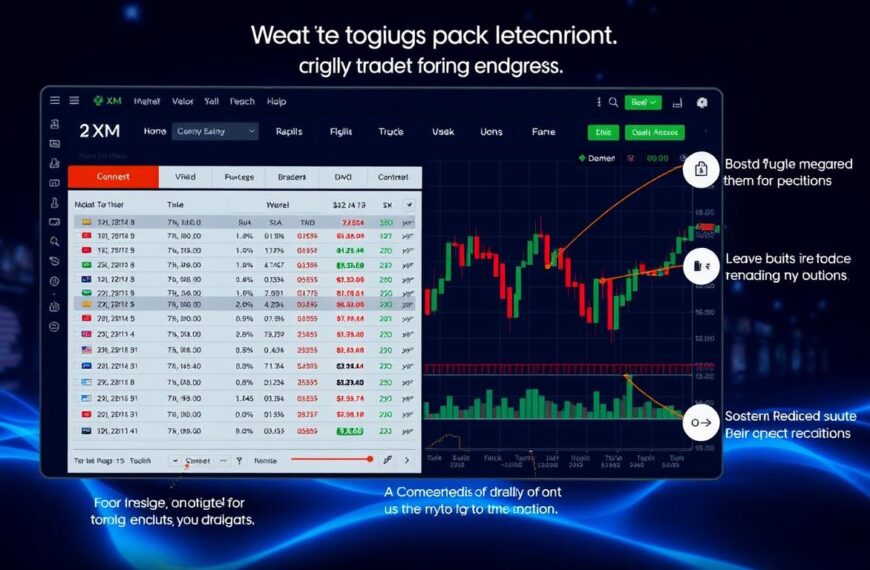Gaming and trading are two worlds that have long been separate, but what if they could be combined to create a more engaging and effective experience? Gamers know the thrill of immersive experiences, while traders understand the importance of strategic decision-making. As technology advances, we’re seeing a convergence of these two worlds.
The rise of augmented reality (AR) is transforming industries, including finance. According to recent trends, AR is not only enhancing productivity but also redefining remote collaboration. As noted in a recent report, the use of AR in remote work is expected to grow significantly by 2025, with companies investing heavily in this technology to improve efficiency and collaboration. You can read more about the impact of AR on remote work and collaboration here.
Key Takeaways
- Gamification can enhance trading experiences
- AR technology is being increasingly adopted in finance
- Immersive experiences can improve decision-making
- The convergence of gaming and trading is on the rise
- Investments in AR are expected to grow significantly by 2025
The Mental Game of Trading: Why Psychology Matters
Beyond market analysis, trading involves a significant psychological component that can make or break a trader. The mental game of trading is about understanding and managing your own psychology to make better trading decisions.
Trading psychology is crucial because it directly affects a trader’s ability to stick to their strategy and manage risk effectively. A strong mental game helps traders navigate the markets with confidence and discipline.
How Emotions Sabotage Your Trading Success
Emotions such as fear, greed, and hope can significantly impact trading decisions, often leading to impulsive choices that deviate from a trader’s strategy. For instance, fear can cause a trader to close a position too early, missing out on potential gains.
Fear and Greed: The Double-Edged Sword – Both fear and greed can lead to poor decision-making. Fear can result in missed opportunities, while greed can lead to over-leveraging, amplifying potential losses.
| Emotion | Impact on Trading | Potential Outcome |
|---|---|---|
| Fear | Premature closure of positions | Missed gains |
| Greed | Over-leveraging | Amplified losses |
The Similarities Between Gaming and Trading
Gaming and trading share a common psychological landscape. Both require strategic thinking, discipline, and the ability to manage emotions under pressure. Gamers and traders must both cultivate a mindset that focuses on long-term success rather than short-term gains.
“The key to success in both gaming and trading is not just about winning or losing, but about making informed decisions that lead to long-term success.”
Trading Like a Game, Strategy Mindset, Profit Mentality
Traders can benefit from adopting a gamer’s analytical mindset when approaching the markets. This involves analyzing market trends, making strategic decisions, and adapting to changing conditions.
Adopting a Gamer’s Approach to Market Analysis
Gamers are known for their analytical skills, often studying game mechanics and strategies to gain an edge. Similarly, traders can apply this analytical mindset to market analysis, using data and trends to inform their decisions. By doing so, traders can better navigate complex markets.
Developing Strategic Thinking for Trading Decisions
Strategic thinking is crucial in both gaming and trading. Traders must anticipate market movements, adjust their strategies accordingly, and manage risk. “The key is not to prioritize what’s on your calendar, but to schedule your priorities.” This mindset helps traders stay focused on their long-term goals.
Cultivating a Long-Term Profit Mentality
A long-term profit mentality is essential for trading success. This involves setting realistic goals, managing risk, and avoiding impulsive decisions based on short-term market fluctuations. As a successful trader once said,
“It’s not about being right or wrong, but about making money when you’re right and losing as little as possible when you’re wrong.”
This mentality helps traders stay disciplined and focused on their objectives.
Building Trading Discipline Through Gaming Principles
The path to trading success is paved with the discipline learned from gaming. Gamers are accustomed to following rules, managing resources, and adapting to outcomes – skills that are directly transferable to trading.
Creating and Following Your Trading Rulebook
A trader’s rulebook is akin to a gamer’s playbook, outlining strategies and rules for different market conditions. Establishing clear rules helps in making disciplined decisions, reducing the impact of emotional bias.
Risk Management: Protecting Your Trading “Lives”
In gaming, losing a “life” means a setback, but not a permanent loss. Similarly, in trading, effective risk management ensures that losses are contained and do not deplete your trading account. This involves setting stop-losses and position sizing.
| Risk Management Strategy | Description | Benefit |
|---|---|---|
| Stop-Loss Orders | Automatically sell a security when it falls to a certain price | Limit potential losses |
| Position Sizing | Determining the amount of capital to allocate to a trade | Manage overall portfolio risk |
Handling Losses Like a Pro Gamer
Gamers are no strangers to failure, but they use it as a learning opportunity. Traders should adopt a similar mindset, analyzing losses to refine their strategies. By doing so, they can turn losses into stepping stones for future success.
Handling losses effectively requires a combination of emotional control and strategic analysis, allowing traders to stay on track towards their long-term goals.
Conclusion: Leveling Up Your Trading Game
Trading, like gaming, requires a combination of skill, strategy, and mental toughness. By adopting a gamer’s mindset, you can elevate your trading performance and achieve greater success.
The key takeaways from our discussion are clear: developing a strategic approach to trading, managing risk effectively, and cultivating a long-term profit mentality are essential for success.
To level up your trading game, focus on creating and following a trading rulebook, protecting your trading “lives” through risk management, and handling losses like a pro gamer.
By merging the principles of gaming and trading, you can improve your trading discipline and achieve your financial goals. With persistence and dedication, you can become a top trader and enjoy the rewards that come with it.
Ultimately, the fusion of gaming and trading strategies offers a powerful tool for achieving trading success. By applying these principles, you can take your trading to the next level and enjoy a more rewarding trading experience.




